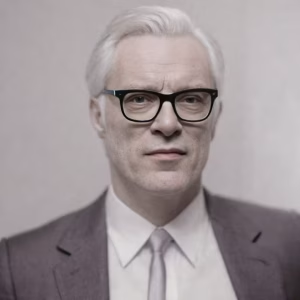
Isaac Asimov was born on January 2nd, 1920, in Petrovichi, Russia. Though he arrived in America as a young child—his family seeking opportunity beyond the shadow of revolution—the echoes of that displacement would subtly resonate throughout his life’s work. He wasn’t raised amongst sprawling estates or academic privilege, but in the bustling, practical world of Brooklyn candy stores owned by his parents. This grounding in the tangible, the everyday, proved a surprisingly potent force in shaping the mind that would come to populate galaxies.
Asimov didn’t become a writer so much as he was one, almost from the moment he could read. He devoured pulp magazines—those brightly colored vessels of adventure and speculation—and began crafting stories himself at an astonishingly young age. His early tales weren’t born of lofty ambition, but of sheer, uncontainable curiosity. He wanted to know what lay beyond the known, and writing was his method of exploration.
He earned a PhD in biochemistry from Columbia University, a field that deeply informed his approach to storytelling. Asimov wasn’t interested in magic or fantastical whimsy; he sought plausibility. His science fiction wasn’t about escaping reality, but extrapolating from it—meticulously building worlds governed by logical consequences and the relentless march of scientific progress.
This dedication to internal consistency set him apart. While earlier voices like Robert E. Howard focused on raw power and primal emotion, or A. E. van Vogt explored psychological landscapes with a dreamlike intensity, Asimov built his universes brick by careful brick. He wasn’t concerned with the feeling of the future so much as its mechanics. His robots weren’t menacing automatons but logical entities bound by the Three Laws—a framework that forced consideration of ethics and societal impact long before such discussions became commonplace.
His prolific output is legendary. Hundreds of books bear his name, spanning science fiction, history, popular science, and even mystery. He was a master of the short form and capable of distilling complex ideas into elegant, thought-provoking narratives. In the short story “Youth,” Asimov doesn’t simply present an alien encounter; he crafts a compelling situation brimming with understated tension. Asimov subtly layers intrigue; this isn’t a tale of heroic intervention—it’s a story that quietly probes the potential consequences of unchecked technological advancement. The narrative can be read as a veiled critique of 20th-century fascination with nuclear energy, suggesting that humanity’s pursuit of power could ultimately threaten not just ourselves but the fabric of civilization itself. It demonstrates Asimov’s remarkable ability to embed profound social commentary within a thrilling and accessible science fiction framework—a testament to his belief that the best stories ask difficult questions rather than simply provide easy answers.
Asimov’s influence on the science fiction industry is immeasurable. He didn’t just write stories; he defined tropes. The Three Laws of Robotics remain foundational to the genre. His Foundation series, with its grand sweep of galactic history and psychohistory—a statistical prediction of future events—established the space opera as a dominant force in speculative fiction. Authors like Arthur C. Clarke admired his clarity and intellectual rigor, while others, such as Ursula K. Le Guin, acknowledged his pioneering spirit even as they charted different courses through the same imaginative territory.
He wasn’t without critics. Some found his prose functional rather than lyrical, prioritizing ideas over stylistic flourish. But this very directness was part of his appeal. Asimov didn’t want to impress you with language; he wanted to engage your mind. He believed in the power of clear thinking and accessible knowledge.
Isaac Asimov passed away on April 6th, 1992. But his worlds continue to expand, his ideas continue to challenge, and his stories—like echoes from a future yet to come–remind us that humanity’s greatest adventure lies not in conquering the stars, but in understanding ourselves. He was, ultimately, a chronicler of possibility, a builder of futures rooted firmly in the present, and a testament to the enduring power of curiosity.